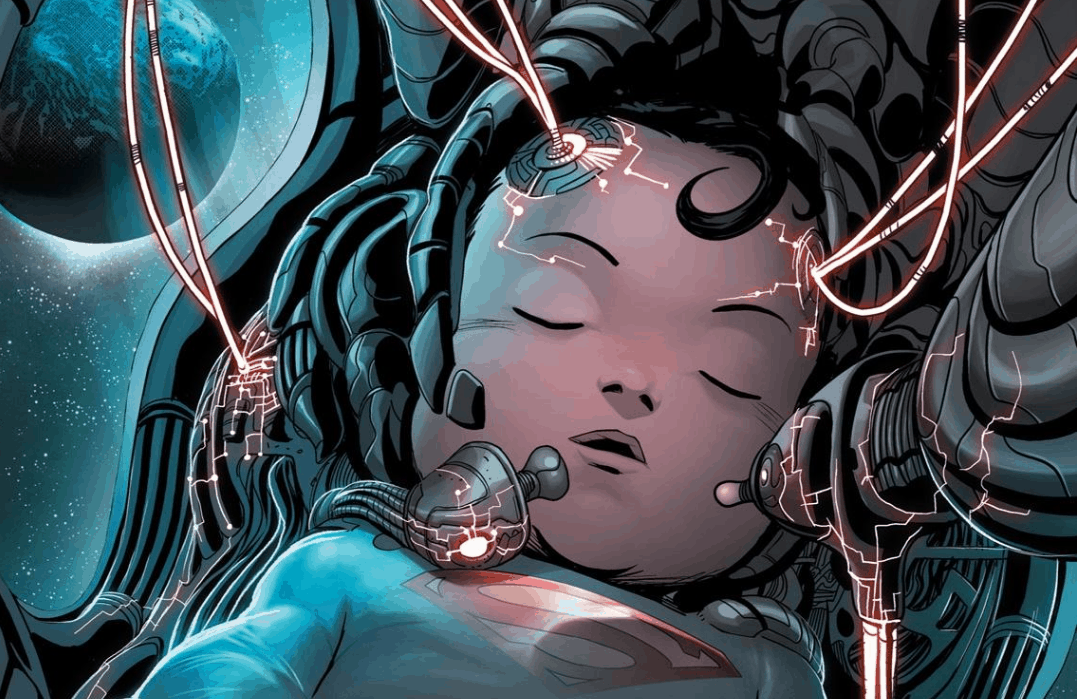
Written by Max Landis
Art by Nick Dragotta
Colors by Alex Guimarães
Letters by John Workman
Published by DC Comics
Superman: American Alien #1 takes readers back to a time and place they’ve seen over and over again: the days of a young Clark Kent grappling with his powers on his family’s farm. However, the dynamism between Max Landis’s writing and Nick Dragotta’s art keep the story from becoming another retread of a young boy becoming Superman.
In the miniseries’s first issue, Clark floats (just like the characters from Landis’ film Chronicle). It doesn’t seem tied to a particular emotion or stimulus; Clark just floats with no control over how it starts, continues, or stops. As Superman’s publishing history shows, he’ll get a handle on this. But Landis and Dragotta take an interesting path getting to that point.
First is the obvious: Clark feels alienated from the rest of the world because, well, he’s an alien. While watching a movie at a drive-in with his friends, he asks Lana if the government would actually bring a captured alien to a secret facility. After a brief float and quick crash, he hides in the bathroom where his reflection turns into E.T., spurring Clark to destroy the wall.
The second and bolder choice Landis and Dragotta make is with Jonathan Kent. In most depictions, he’s a doting father who does everything he can to help his son grow comfortably and safely despite the boy’s origins and powers. In American Alien, Jonathan does that, but he’s also scared of Clark. Before ultimately helping Clark soar, Jonathan wakes with a start after having a nightmare about the day the Kryptonian refugee crashed on the farm. Later, he stays silent after a doctor suggests taking Clark to scientists for testing while Martha vehemently disagrees.
Once the two stop being afraid of what Clark can do, flight comes naturally to the future Superman. He blasts off from his float at top speed before crashing into a silo. From there, Clark is thrilled and exhilarated; he dreams of flying faster and seeing the world, alongside his parents whom he’d carry in a car.
The growth Landis and Dragotta give Clark over the course of the issue is important. Early on, Clark looks sullen and almost shrunken as he says, “Dad, I’m so unhappy. I want to be myself. I don’t want to worry that I’m something else.”
By the end, Clark understands that he’s himself and something else. Although he may be an alien who flies, he reacts like a human boy to that news: with pure joy.
While American Alien will explore Clark’s vulnerabilities and alienation through his formative years, it’s heartening to see Landis understand that the character’s fundamental humanity is what keeps him from truly being an alien.


